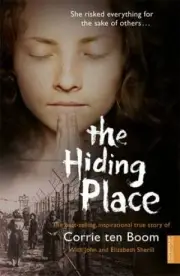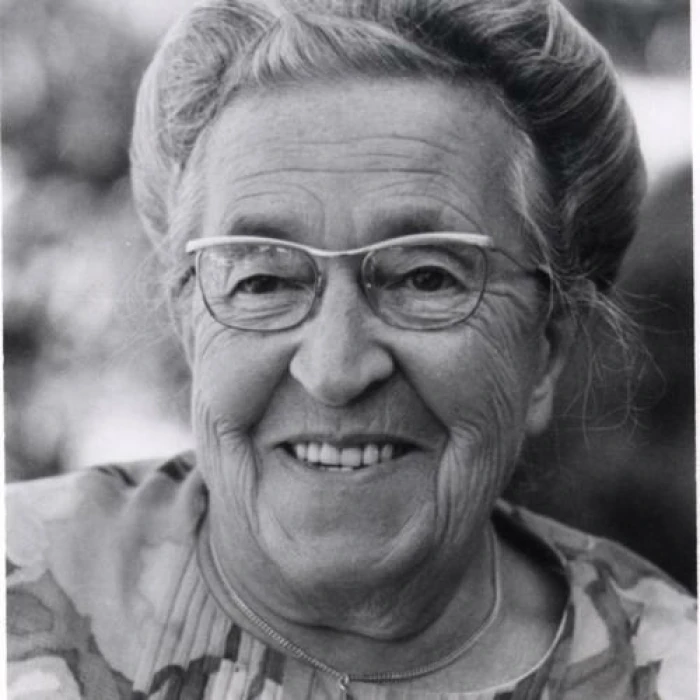The Hiding Place
Amazing account of God’s leading, guidance, and protection,
Very moving account, even in the very dark times we can praise God
Mark Wood
The Hiding Place
After years of saying I couldn’t face opening such a disturbing book, I thought it was high time to read this Christian classic, however upsetting it would be.
I read the book in two days and I laughed more than I cried. It is written in a sweetly self-deprecating manner with touches of humour that make it well balanced.
A humbling read, ‘The Hiding Place’ paints a picture of how enterprising, creative and sacrificial people can be. Without giving away too much, it is Corrie ten Boom’s sister who seems to be the shining example of what the Christian attitude to suffering ought to be. But - like most readers, I expect - it is Corrie with whom we most identify, and we see how the Lord also uses ‘normal’ people to serve Him and accomplish His purposes.
Whilst the horrors depicted in the book are real, they are not dwelt upon, as it is the eternal perspective that is foregrounded, highlighting God’s gracious dealings in times of suffering.
Why did I put it off for so long?
Esther
The Hiding Place
We read this together as a home group over a few weeks and found the story incredible!
One of the best biographies I have read. The ten Boom's as a family clearly had a great trust in Jesus and love for him that pulled them through the most horrible of situations.
Looking forward to meeting this very humble family in heaven.
Nick Brake
The Hiding Place
Once in a while a book comes along which completely transports you to another time and another place, so much so that as you lay the book down you realise with a jolt that you are not part of it. This is such a book. First published over 40 years ago, this book is in my opinion a classic of Christian literature.
When we first meet Corrie ten Boom, she had lived all her life in the Beje, (a tiny, architecturally challenged building in the heart of Haarlem, Holland) working alongside her wise father Casper and sister Betsie in the family business, selling and repairing watches. A spinster who lived a life of routine as predictable as the ticking timepieces in the small shop window, at the age of 47, she could have been forgiven for thinking that life would continue in this quiet way for many years to come. No one could have imagined the dark shadow of Nazi invasion and the growing horrors of anti-Semitism which would soon draw her from her comforting daily routine to life as a member of the Dutch Resistance, full of danger, adventure and centred on a total reliance upon God.
As life became ever more difficult for the Jews in Holland, Corrie began to collect and deliver work for Jewish customers so they did not have to expose themselves to the increasing dangers of street arrests. One such visit became a turning point. Corrie was in the home of the Heemstras – a doctor, his wife and two young children – a Jewish family. Talk of rationing and the news from England was suddenly interrupted by the children calling for Daddy to tuck them in. The Doctor hurried upstairs and soon the sounds of a game of hide and seek and children’s laughter drifted down to the room below.
“That was all. Nothing had changed. Mrs Heemstra continued with her recipe for stretching tea ration with rose leaves. And yet everything was changed. For in that instant, reality broke through the numbness that had grown in me since the invasion. At any minute there might be a rap on this door. These children, this father and mother, might be ordered to the back of a truck.
Dr. Heemstra came back to the living room and the conversation rambled on. But under the words a prayer was forming in my heart.
“Lord Jesus, I offer myself for Your people. In any way. Any place. Any time.”
And then an extraordinary thing happened.
Even as I prayed, that waking dream passed again before my eyes. I saw again those four black horses and the Grote Markt. As I had on the night of the invasion I scanned the passengers drawn so unwillingly behind them. Father, Betsie, Willem, myself – leaving Haarlem, leaving all that was sure and safe – going where? “
This vision was surely a preparation for the chilling day when a Nazi raid on the Beje would result in the arrests of thirty five people working with the Underground –and an assurance that even this was in the hands of God.
Whilst in solitary confinement in a prison cell at the Nazi Headquarters in Holland, Corrie devoured the four gospel booklets smuggled to her with a new and urgent hunger.
“And as I did, an incredible thought prickled the back of my neck. Was it possible that this – this war, Scheveningen prison, this very cell, none of it was unforeseen or accidental? Could it be a part of the pattern first revealed in the Gospels? Hadn’t Jesus – and here my reading became intent indeed – hadn’t Jesus been defeated as utterly and unarguably as our little group and our small plans had been? But…if the Gospels were truly the pattern of God’s activity, then defeat was only the beginning. I would look around at the bare little cell and wonder what conceivable victory could come from a place like this.”
After the war, Corrie began to see the victory that could come from such a place, as she travelled far and wide sharing the compelling truth and eternal hope of the gospel of Jesus Christ. Today we can echo the words of the Rabbi of Haarlem, who at the beginning of the Occupation brought his precious books of Jewish theology to Casper ten Boom for safe keeping. “Old friend”, he said, “books do not age as you and I do. They will speak still when we are gone, to generations we will never see.” And so by the grace of God, the story of Corrie, Betsie and Casper, and their unquenchable faith in God, continues to testify to the unending faithfulness of our great God.
Corries story has also been adapted for children in “Are all the Watches Safe?” by Catherine Mackenzie and “Corrie ten Boom; Watchmakers Daughter” by Jean Watson, both available to order on this site.
Sarah Kitchener






